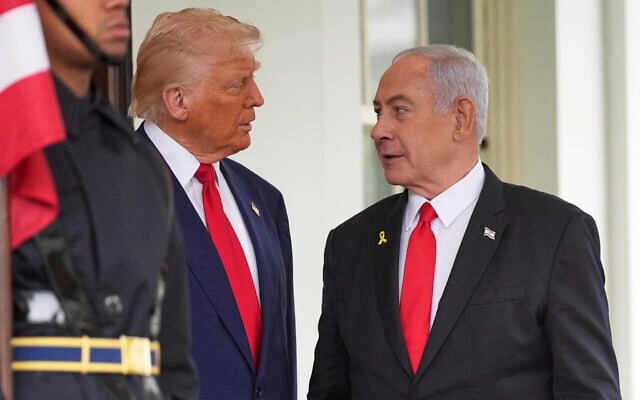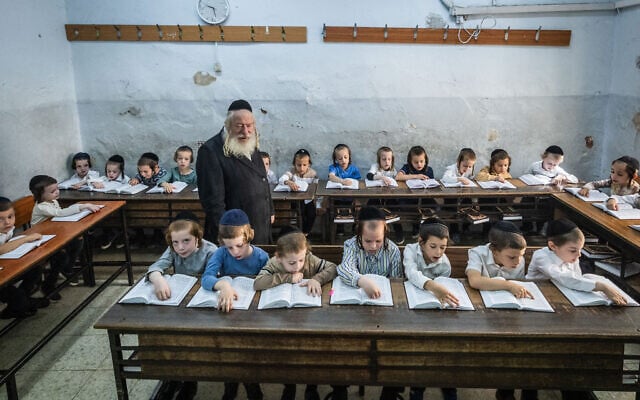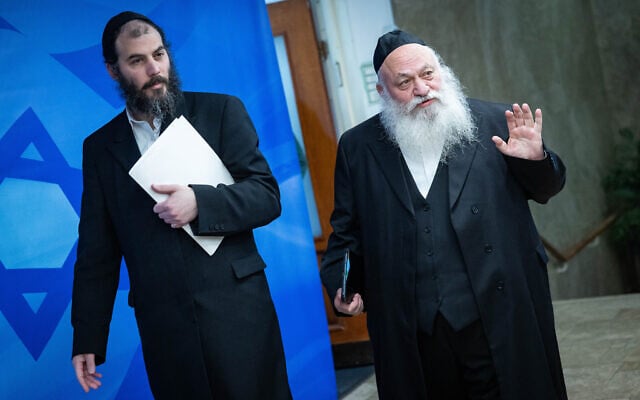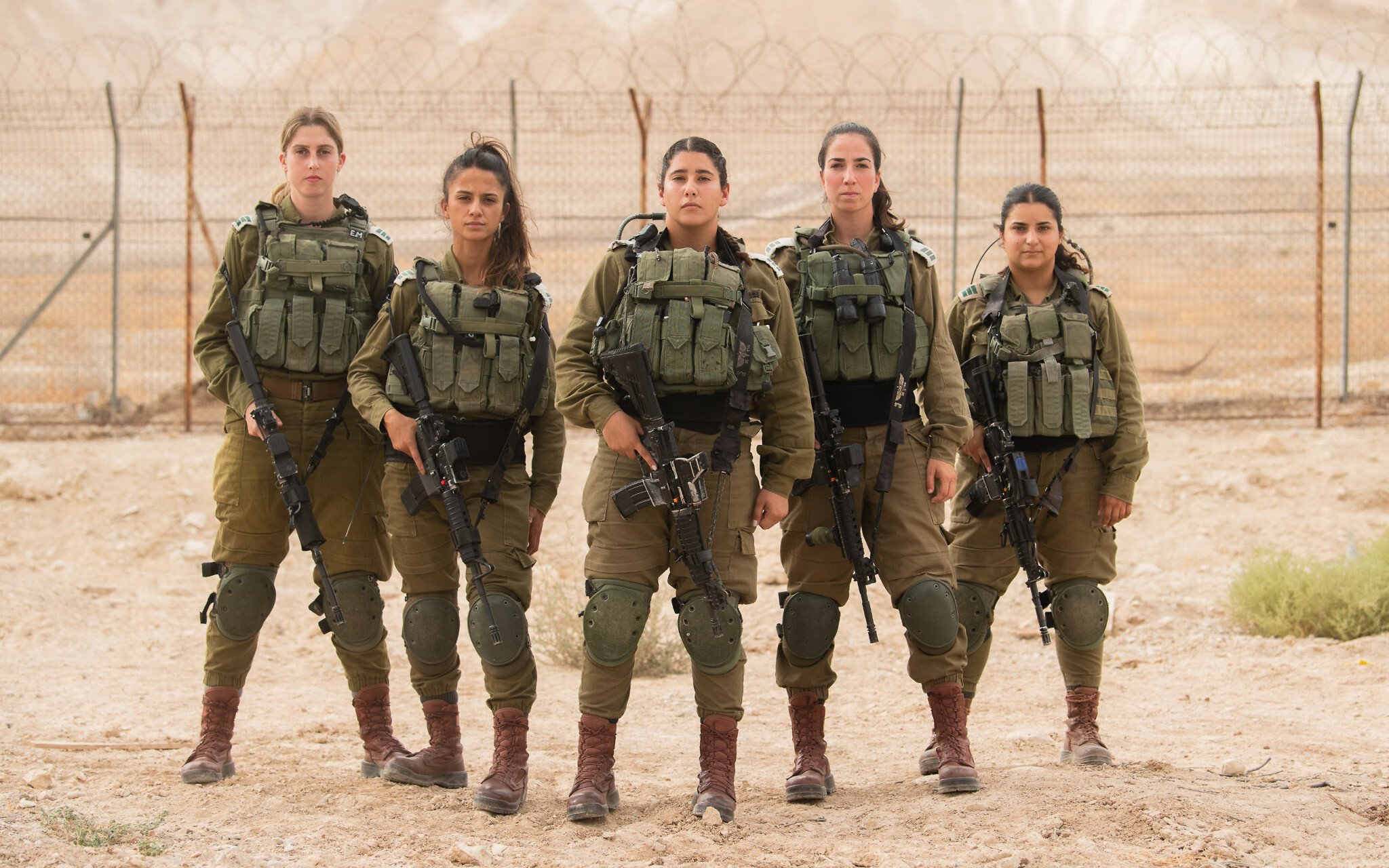One in five Israeli combat soldiers is female, a senior officer
said in a recent Knesset hearing, underlining a major uptick in women
serving in fighting roles.
“Today, women make up 20.9% of the IDF’s combat force – this is
an unprecedented figure. We’re also seeing an increase in the
technological units, but the main surge is in women serving as combat
soldiers,” Brig. Gen. Shay Tayeb, head of the Personnel Directorate’s
Planning and Personnel Management Division, said on May 7 while
presenting official data to Knesset members in a discussion focused on
female combat soldiers in the context of the need for an equitable
conscription law for ultra-Orthodox men.
However, as women increasingly enlist in light infantry
battalions, elite combat units, and other units that may put them on the
frontlines, the army may struggle to address the dual challenge of
integrating them alongside a hoped-for influx of ultra-Orthodox
soldiers, policy planners warned.
Out of 18,915 Haredim who received initial draft orders since July
2024, around 319 have enlisted; 2,521 who ignored multiple draft orders
were sent immediate call-up orders requiring them to show up at an
induction center within 48 hours or be declared a draft evader.
In direct opposition to Haredi men evading the draft, Maj. Sapir
Barabi, head of the Sources Department at the IDF Personnel Directorate,
noted that between 2012 and 2024 – based on recruitment yearbook data –
the number of female combat soldiers rose tenfold.
Regarding the types of combat roles open to women, the IDF said that
women can today be assigned to 58% of combat positions. Units still
closed to women include all of the IDF’s maneuvering infantry and
armored forces, along with the vast majority of commando units, all of
which are trained to operate within enemy territory.
Cracks in the special forces glass ceiling
The IDF has offered women combat service for about 20 years in the
framework of mixed-gender light infantry battalions that are permanently
stationed on Israel’s borders with Egypt, Jordan, and, more recently,
the West Bank, as part of the Border Defense Corps.
Women comprise approximately 60% of all mixed-gender battalions, and
the male and female combat soldiers train and serve together from the
moment of enlistment through training and deployment to the borders.
During the October 7, 2023, Hamas onslaught, members of one of the
light infantry battalions normally stationed on the Egypt border,
Caracal, and its all-female tank company fought for hours, killing
dozens of attackers along the border and in communities overrun by
terrorists.
The Home Front Command’s Search and Rescue Brigade, whose troops are
mostly women and fully combat-trained, is often deployed to carry out
routine arrest and defense operations in the West Bank. During the war,
the search and rescue forces operated in Gaza to assist the maneuvering
troops.
In the Air Force, women and men serve together in the aerial defense
array — technically considered combat service. The Navy also sees women
serving alongside men aboard missile boats.
Female soldiers also serve as canine handlers in the elite Oketz unit
and as paramedics in other male-dominated infantry and armored
brigades, including during the ground offensive in Gaza.
The IDF is expanding other opportunities after seeing a significant rise in the number of women serving in combat roles.
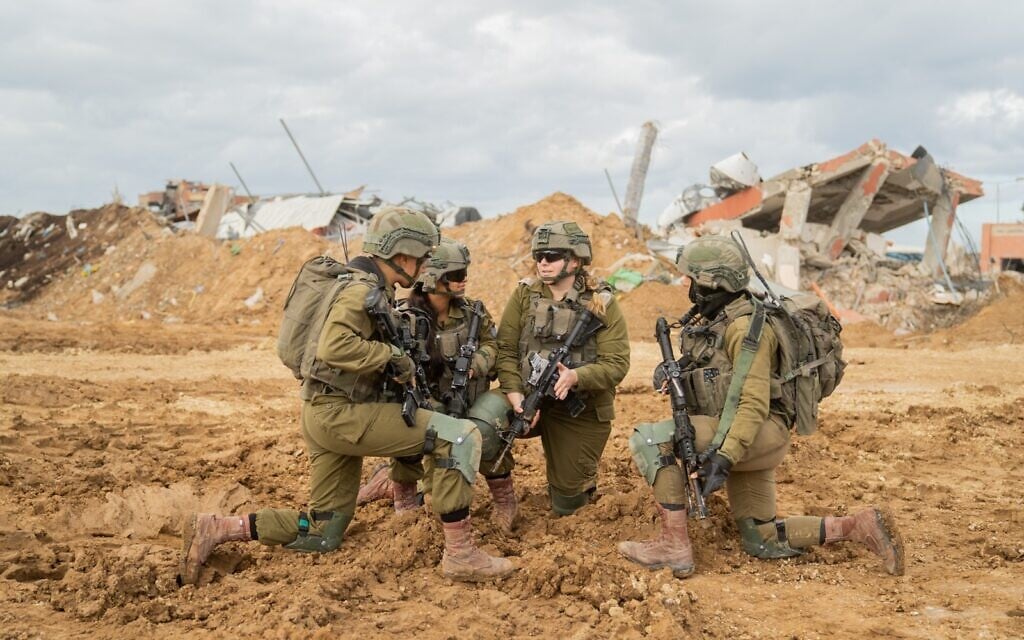
Female combatants of the Paratroops mobility unit in the Gaza Strip during the October 7 war (IDF)
In 2024, the IDF launched pilot programs to integrate women into
special forces units, including Unit 669, Sayeret Matkal, and Yahalom –
the Combat Engineering Corps’ elite unit. The pilot at Yahalom has ended
and the IDF is awaiting a decision on whether it will officially open
the unit to female service.
Some female soldiers who completed the Yahalom pilot have already
gone on to the IDF officers’ course, while others are now completing two
years in the unit. It is unclear whether the IDF has integrated those
women who completed the pilot into operational activity beyond the
border.
The two female soldiers who were recruited to the prestigious 669
rescue unit dropped out, and no public information is available about
the one recruited to the Sayeret Matkal special reconnaissance unit. At
this point, there is no information on whether the pilot as a whole will
continue or whether additional female recruits will be added to these
units.
The IDF notes that all the women initially passed the screening and
combat training requirements, using an adjusted physical fitness scale.
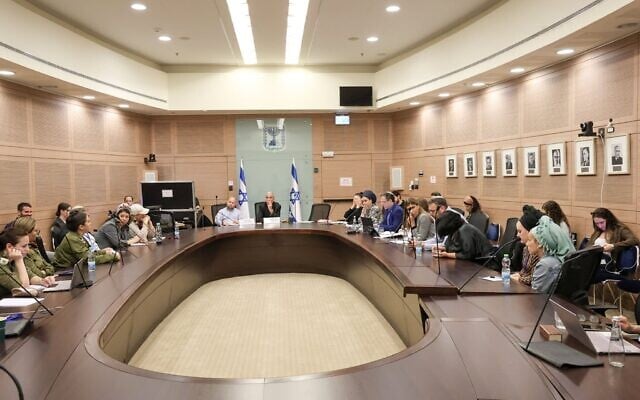
A discussion on women in combat service
at the Knesset Subcommittee on Human Resources of the Foreign Affairs
and Defense Committee, chaired by MK Elazar Stern (center) of Yesh Atid
(Danny Shem-Tov/Knesset Spokesperson’s Office)
Another ongoing IDF pilot is testing the integration of women into
combat mobility units in the Ground Forces. Each infantry battalion
currently has mobility platoons, usually composed of regular infantry
soldiers who receive additional training in operational driving on
Hummers and/or ATVs.
The primary mission of the mobility unit is to deliver heavy supplies
to forces operating in enemy territory – water, food, ammunition,
mortars, missiles, and more. Other tasks include evacuating wounded
soldiers under fire or transporting equipment between company commanders
or from company commanders to battalion commanders, also under fire.
This pilot began recently and includes about 30 female combat
soldiers recruited as a cohesive platoon. They are in advanced training
at the Paratroopers Brigade training base, Camp Eitan, near Kibbutz
Shomria.
According to Barabi, their training course is identical to that of
male combat soldiers. The IDF decided to keep the women as a separate
gender-segregated platoon within the brigade training base and not to
integrate them into mixed-gender units with male combat soldiers.

Female soldiers in training at the commando brigade (IDF)
A further pilot program expected to open to female combat soldiers in
the 2025 recruitment cycle is in Unit 504 – the unit responsible for
recruiting agents in enemy territory and interrogating prisoners, both
in the field and in IDF facilities. Unit 504 belongs to the IDF’s
Intelligence Directorate, which has the highest number of women serving
in general intelligence roles.
Enough pilot programs; let the women fly
MK Merav Michaeli of the Labor party accused the military of using
the pilot program system as a tool to delay integrating women into
combat roles.
“I don’t see other parts of the population being placed under various
pilot programs,” she said. “Just let them be assessed according to the
‘right person for the right role’ policy and put an end to all these
pilots.”
One of the more contentious issues raised in the discussion, in the
Knesset’s Subcommittee on Human Resources of the Foreign Affairs and
Defense Committee, was the IDF’s decision to allow religious female
soldiers to serve in combat roles within “gendered platoons,” similar to
the arrangements offered to religious male soldiers who do not want to
serve alongside female combatants.
For example, the IDF is expected to soon open up for women a
gender-segregated combat platoon in the Combat Intelligence Collection
Array — part of the Border Defense Corps — likely within the Eitam
Battalion, which monitors the Egypt and Jordan border in southern
Israel, and another such platoon within one of the Aerial Defense
Array’s Iron Dome battalions.

Maj. Lior Engel (Rovach) during her service as a company commander in Caracal
Michaeli sees the IDF’s allowing of sex-segregated units for
religious soldiers as a dangerous path that could undermine the army’s
operational goals.
“Dividing units by gender or sex does not stem from operational needs
but from political considerations,” she said. “You described a
phenomenon of ultra-Orthodox soldiers who don’t want to serve in
artillery units because they’d have to serve alongside female
combatants. This is a dangerous approach for the IDF. The great concern
is that gender segregation will expand, and ultimately this will harm
the IDF – and will harm women.”

Female combatants of the Paratroops mobility unit in the Gaza Strip during the October 7 war with a stray dog. (IDF)
Similar dropout rate
Asked about the dropout rate of female combat soldiers from their
training tracks, Barabi noted that in the Border Defense Corps the
dropout rate among women is 15%, compared to 14% among men. “There is no
major difference between the genders,” she said, “and the rates of
leaving combat roles are similar across all units.”
Also participating in the discussion was Ofra Ash, CEO of the Deborah
Forum, which promotes women in national security and foreign policy,
who pointed out that there is still a lack of women in senior command
roles in the IDF.
“Until there are women at the General Staff Forum – women who rose
through the combat and operational ranks – we cannot say that progress
has been made,” she said.
Currently, there are only two female generals serving in the General Staff Forum, both legal officers.

Chief Military Advocate Yifat
Tomer-Yerushalmi at a farewell ceremony for retiring acting Supreme
Court President Uzi Vogelman, at the Supreme Court in Jerusalem on
October 1, 2024.
Taking pressure off the reserves
At a follow-up discussion in the Foreign Affairs and Defense
Committee on May 8, the IDF’s Tayeb emphasized that “every new regular
mixed-gender battalion – male and female – presents immense potential to
reduce dependence on the reserves.”
Tayeb explained that a single regular battalion – for example, a
mixed-gender battalion in the Border Defense Corps or the Search and
Rescue Brigade – is equivalent in operational output to about seven
reserve battalions.
However, if there is one statistic that indicates the growth in the
number of women serving in significant roles in the IDF, it is the
percentage of women currently serving in the reserves.
During the Second Lebanon War in 2006, women made up only 3% of
reservists. By Operation Protective Edge in 2014, that figure had risen
to 8%, and in the October 7 war, the proportion of women in the reserves
surged to 20%.
On a general IDF level, he said, 90% of all IDF roles are currently open to women.
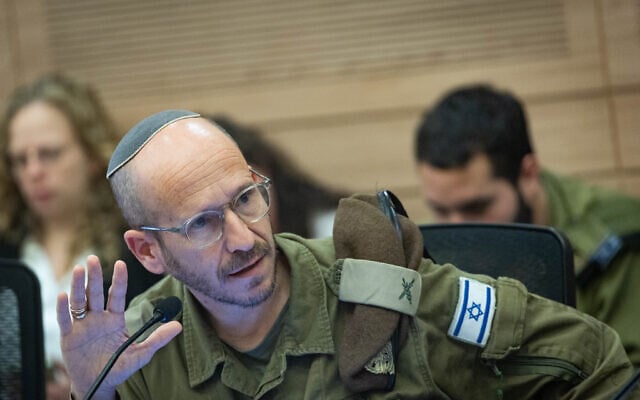
Brig. Gen. Shay Tayeb, head of the IDF
Personnel Directorate’s Planning and Personnel Management Division,
addresses the Knesset Foreign Affairs and Defense Committee, May 8,
2025.
Tayeb revealed that of female candidates for military service, 37%
identify as religious – either ultra-Orthodox or national-religious.
Additionally, 25% of enlisted women are assigned to units in which the
mandatory service period is 32 months, the same as for men. These units
include the combat forces as well as some intelligence units.
During the discussion, MK Simcha Rothman from the Religious Zionism
party asked how the sharp increase in the number of women – particularly
religious ones – joining combat roles occurred organically, without any
special measures taken by the IDF. This, Rothman noted, contrasted with
the IDF’s considerable logistical and financial investment in
recruiting ultra-Orthodox men, which has not yielded similar results.
Three female MKs — Michaeli, Sharon Nir, and Efrat Rayten — told
Rothman that women’s motivation stemmed from watching their brothers and
friends enlist, and from a desire to take an equal part. In fact, in
many cases, they said, the women’s families did not support their
decision to choose combat service.
The female MKs said that in the case of women’s enlistment, the IDF
did not run any special recruitment campaigns – the demand for
meaningful service arose from the ground up.





